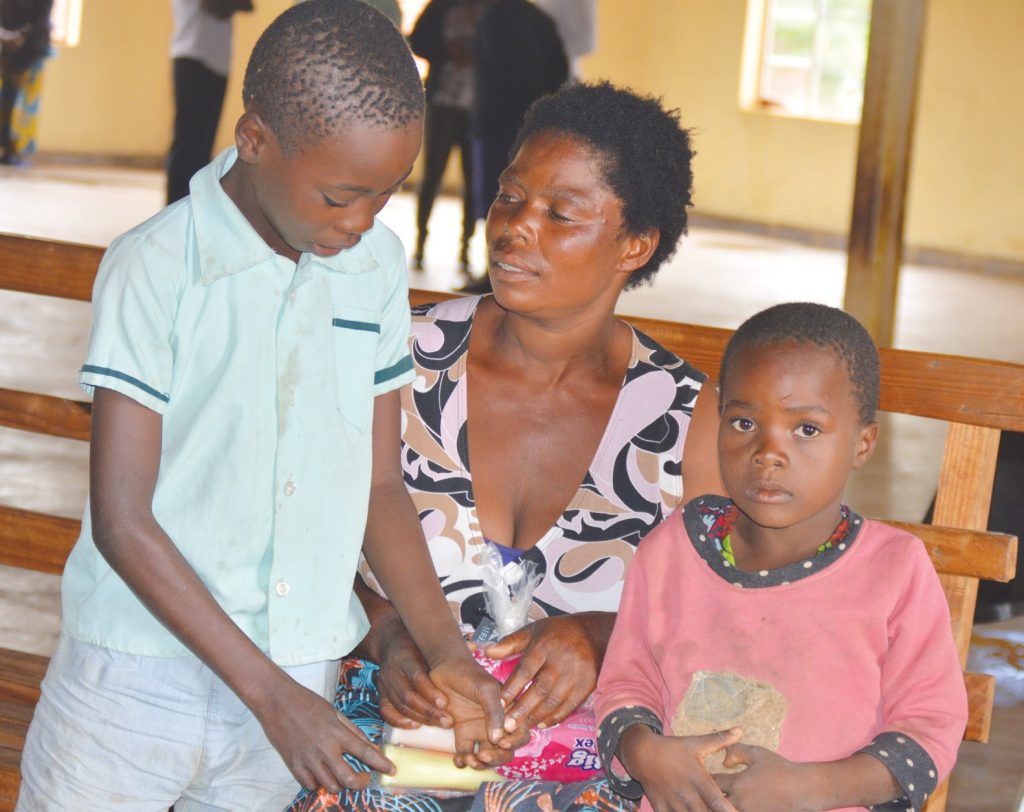Enduring disaster pain
On the banks of Kasangadzi River in Mponela, the centrepoint of flash floods in Dowa, signs of destruction are everywhere—houses washed away, others ripped apart, crops and trees flattened.
It’s been a week since brutal waters strayed off theircourse, breachingtheriverbanksontohuman settlements with devastating consequences; three lives lost, over 1 000 hectares of crop fields destroyed and around 200 people displaced.

The river, which was once narrow, has seen its banks burst into scary wide and yawning gullies speckled with emotion-inducing debris; a muddy empty suitcase here, a wet shoe there and a golf shirt held captive in a tree.
“It was a terrible day. I survived by a whisker. I was pulled out of my house through a rope as raging water reached neck high,” recalls one of the survivors, Efelo Kambani.
As Nation on Sunday traced the trail of destruction, it was clear that almost all the affected houses were constructed near the river, some as close as three metres away— a daring and hazardous adventure.
From this, affected residents are paying a heavy price.
Kambani, 39, says her family lost, among others, a newly constructed house, fertiliser, maize and sewing machines, taking away her source of livelihood.
“I have life, but I am as good as dead. I don’t even know where to start as far as rebuilding our lives is concerned,” the mother of seven said in an interview at Mponela Church of Christ premises.
Here, there is a camp housing190 survivors, including 17 under-five children.
Destitution is prevalent amid lack of basic needs such as food and clothes.
“I am feeling cold, but then I don’t have clothes to keep me warm,” said Kambani, as a rush of cold weather hit the camp amidst incessant rains.
What is hurting some survivors more is that their children are unable to attend school.
Consolata Francesco, whose four children are also at the camp said: “They don’t have notebooks, shoes and extra clothes. Let’s hope that they get help soon or they will be left behind.”
One of her children, Filipino Chaziya, in an interview feared that her dream to become a nurse has been blown away.
“I just want to go back to school. If there are people out there that can help me, I will rejoice,” said the Standard Seven learner at Mponela One Primary School.
Camp chairperson Alfred Chimbereko said the Department of Disaster Management Affairs (Dodma), Dowa Central parliamentarian Darlington Harawa and other well-wishers have been supporting the survivors, but the situation is still dire.
“There is still a need for more support. The survivors are eating once a day and that is not good enough, especially considering that there are children who could suffer malnutrition.
“Our Parliamentarian has distributed notebooks and ball points to the children. But they need more before they return to school,” he said.
Diseases are also creeping in, as per confessions of health workers that have been providing mobile services. On the day we visited the camp on Wednesday, 37 survivors sought medical assistance.
As we went to press, Dodma had not responded to our questionnaire, seeking an update on the state of disasters and the estimated cost of destruction.
However, in a press release issued on January 9 2024 before the Dowa floods, it said the disasters; mainly stormy rains, strong winds and lightning, have affected 14 councils, namely Chiradzulu, Dowa, Kasungu, Lilongwe, Mangochi, Mulanje, Mchinji, Nkhata Bay, Nkhotakota, Ntcheu, Nsanje, Rumphi, Salima and Thyolo.
“The total number of affected households has risen from 961 [as reported in our statement dated December 12 2023] to 4 751, which is approximately 21 379 people. Out of the total number of the affected households, 2 676 are male-headed whereas 2 075 are female-headed.
“The department has recorded five deaths [all caused by lightning strikes] and 46 injuries largely caused by stormy rains. Out of the total number of the injured, 29 are males while 17 are females,” it reads in part.
In its brief report, Dowa District Agriculture Office forecasts a drop in maize production.





